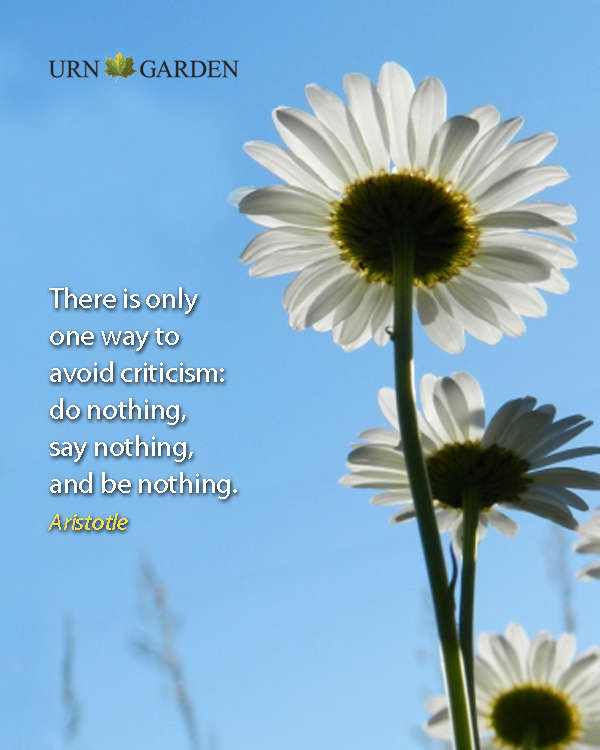 Here’s the truth about life: sometimes you just can’t “make it right.” Something horrible happens – a relationship sours, a loved one receives a life-threatening diagnosis, or an untimely death puts an end to the opportunity for reconciliation – and there’s not a darned thing we can do to change things.
Here’s the truth about life: sometimes you just can’t “make it right.” Something horrible happens – a relationship sours, a loved one receives a life-threatening diagnosis, or an untimely death puts an end to the opportunity for reconciliation – and there’s not a darned thing we can do to change things.
Sometimes a loved one’s addiction is the issue; and again, there’s nothing you can do to change things. After all, you can’t re-form another person’s way of thinking and living. You can only change the way you think about the situation – and earnestly practice self-compassion.
What I Know (from Personal Experience)
I’ve literally spent years beating myself up for my perceived failure(s) At 64, I’ve got a barrel full of “things I can’t change: I was estranged from each of my parents for years before their deaths; I can now see how selfish I was in the partnering relationships I had as a young adult; and I usually feel I didn’t do enough for my ex-husband when he was dying. For more on that, read “Anticipatory Grief: One Woman’s Story”.
It got very tiring carrying all that emotional weight and self-criticism. It was time to change the way I thought; in fact, such a change was way overdue! I needed to learn how to have compassion for yourself. I’m still learning.

What’s Self-Compassion?
Wikipedia defines it this way: “Self-compassion is extending compassion to one’s self in instances of perceived inadequacy, failure, or general suffering.” The entry goes on to mention Dr. Kristin Neff, Associate Professor of Educational Psychology at the University of Texas in Austin, and publisher of the Self-Compassion website, She argues self-compassion is made up of three main components – self-kindness, common humanity, and mindfulness.
How to Practice Self-Compassion
You might remember the punchline to the old joke, which begins “How do you get to Carnegie Hall?” The answer of course is “Practice!” Learning self-compassion takes practice, too; it’s a daily effort.
Allison Abrams, who holds an LCSW, wrote in the Psychology Today online article, “How to Cultivate More Self-Compassion,” tells readers why it’s important to do so: recent “research has consistently shown a positive correlation between self-compassion and psychological well-being.” She tells readers those who are adept practitioners of self-compassion “have greater social connectedness, emotional intelligence, happiness, and overall life satisfaction. It reduces anxiety, depression, feelings of shame and fear of failure. It seems there are lots of good reasons to adopt self-compassion as a way of life.
Birgit Ohlin, a certified life coach, offered readers of her October, 2016 online article, “5 Steps to Develop Self-Compassion & Overcome Your Inner Critic” a simple set of activities.
- Practice Forgiveness: Not just for others; for yourself. “Accept that you are not perfect and be gentle with yourself when you are confronted with your shortcomings,” advises Ms. You are valued by your friends and colleagues for who you are, not because you are faultless.
- Adopt a “Growth” Mindset: Research has found people with a willingness to grow and learn – as opposed to those who have a rigid, “fixed” mind are happier. “Embrace rather than avoid challenges, persist in finding meaning in them, don’t give up on yourself.”
- Express Gratitude: This is, at least for me, the easiest of the steps to greater self-compassion “By focusing on our blessings we employ a gentler voice and move the focus away from ourselves and our shortcomings and out to the world with all its beauty.”
- Practice Generosity: But do so at an appropriate level. “For generosity to work in favour of your wellbeing, it cannot be selfless,” she admonishes. When being generous, make sure you are aware of your own needs beforehand. Being generous should be fun; it should nourish your spirit; a generous act for someone else should also be a gift to you.
- Practice Mindfulness: ‘It’s a rather trendy topic these days; you’ll find thousands of articles online about mindfulness – and for good reason. research has found it reduces self-criticism. It makes sense; how can I beat myself up about something I did or didn’t do in the past when I’m living in the present moment? The answer is, “I can’t.”
“Whatever you do, try to be in the moment and aware of what is happening right now without judgement and labelling,” advises Ms. Ohlin. It makes sense; how can I beat myself up about something I did or didn’t do in the past when I’m living in the present moment? The answer is, “I can’t.”

Self-Compassion: Make it a Lifelong Practice
Some days will be better than others. Hey, who ever said unconditional love for yourself is easy to cultivate. It takes conscious effort and focused attention. Just think of how much lighter and happier you’ll feel; and who deserves it more than you? As the Buddha said, “You can search throughout the entire universe for someone who is more deserving of your love and affection than you are yourself, and that person is not to be found anywhere. You yourself, as much as anybody in the entire universe deserve your love and affection.”